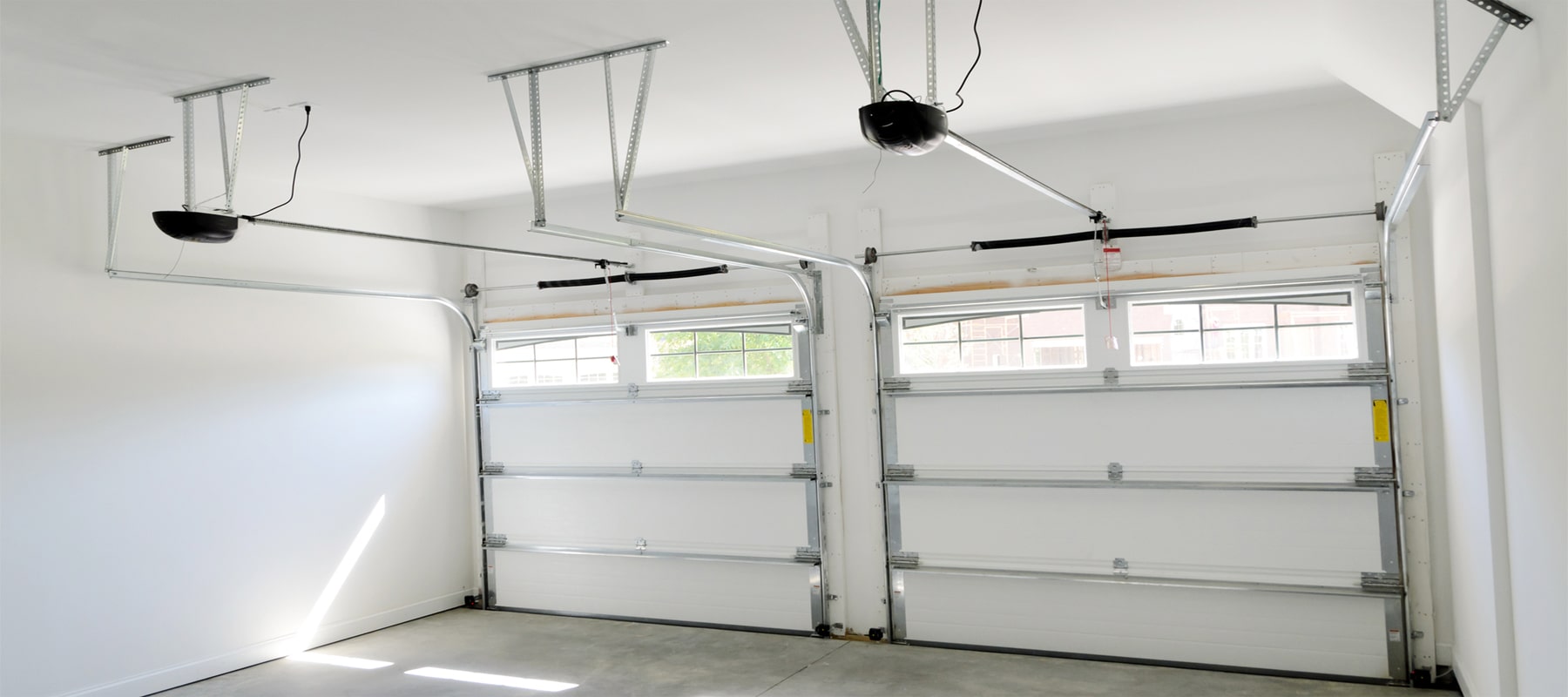Browse all articles for: Garage
How Much Does a Garage Door Opener Cost?
Last Updated: January 19, 2022
On This Page
Modern garage door openers are available with one of five different drive systems. You also have the option to add bells and whistles that will make your home's largest access point safer and more convenient. A moderately handy homeowner can install a garage door opener him or herself and save on the overall cost.
Types of Garage Door Openers #
Until recently, residential garage door openers were belt, chain, or screw-driven systems. Nowadays, it's additionally possible to buy a jackshaft or direct-drive opener. The differences between these models are explained below.
- Belt and Chain Openers: The most common garage door openers, belt and chain driven systems push/pull a trolley (or carriage) that is connected to the garage door via a J-shaped bar (for a visual, see this illustration in Popular Mechanics). Chain-driven systems, which push/pull the trolley with a bike-style chain, are among the cheapest garage door openers. They tend to be noisy, however, and aren't ideal for garages located beneath a bedroom. Belt-driven openers use a polyurethane belt (or Kevlar or fiberglass or some other material…different types of belts are available) to push/pull the trolley. While quieter than chain-driven garage door openers, belt-driven models cost a bit more.
- Screw Openers: A screw-driven garage door openers operates similarly to belt and chain systems, except that the operator is connected to the trolley by a threaded shaft. Screw-driven models are moderately noisy, have fast operation, and require minimal upkeep (thanks to few moving parts), although they should be lubricated regularly. They may not be the best choice for areas with wide-ranging temperatures.
- Jackshaft Openers: Jackshaft garage door openers are mounted to the side of the torsion bar (rather than overhead, like chain, belt, and screw-driven openers). The motor inside of the jackshaft opener uses pulleys and cables to move the torsion bar, thus raising and lowering the garage door. Jackshaft models are more expensive, but they are quiet and allow for greater overhead storage space.
- Direct-Drive Openers: German-engineered direct drive systems essentially combine the trolley and motor into one unit. The unit is connected to the door by a J-shaped bar and moves along an overhead rail. There is only one moving part (the motor), making direct-drive systems very quiet.
Other Considerations #
- Chain and screw drive systems are recommended for detached garages due to the noise they produce. For an attached garage, consider a belt or direct drive system.
- Garage door openers are typically ½ or ¾ horsepower. A ½ horsepower opener should be sufficient for standard two-car garage doors. Heavier doors, such as carriage doors, may require ¾ horsepower.
- An opener can be powered by a DC (direct current) or AC (alternating current) motor. DC motors provide faster, quieter, and more efficient operation and allow for a battery backup (for occasions when the power goes out).
- Battery backup is just one of many options you can add to a new garage door opener. Other available bells and whistles include a fingerprint keypad, motion sensor lights, and a mechanism that opens the door when high carbon monoxide levels are detected.
- It's important to regularly lubricate the springs and bearings on a garage door opener (check the owner's manual for a recommended lubricant). These parts may also need to be replaced from time to time. If your opener isn't working correctly, have them checked out before purchasing a brand new unit.
Garage Door Opener Average Costs #
- Chain drive garage door openers cost $130 to $250.
- Screw drive openers cost $150 to $300.
- Belt and direct drive openers cost $175 to $350.
- Jackshaft drive openers cost $250 to $500.
- Professional installation of a garage door opener costs $100 to $250.
- Higher-priced models might include accessories such as a pocket/purse remote control, a motion detector, and a multi-function wall console. Otherwise, add-ons (wireless keypad, rail extension kit, extra remote, safety beam kit, etc.) cost around $25 to $50 apiece.
